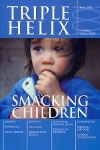The battle over stem cells intensified throughout 2004 becoming a major issue in the US election won by Republican George Bush on 4 November. Much of the controversy centred around different views on the status of the human embryo, and the fact that embryos have to be created and destroyed to produce stem cells. Bush's policy was to restrict federal funding to research on the 78 embryo stem cell lines in existence since 9 August 2001, banning both the use of all new human embryos and the creation of cloned human embryos through cell nuclear replacement. Democrat candidate John Kerry supported funding the use of embryo stem cells, cloned and otherwise, to develop treatments for heart disease, Alzheimer's, Diabetes and Parkinson's.[1]
The emotional intensity of the debate was raised considerably by the involvement of celebrities who threw their weight behind Kerry. Back to the Future star Michael J Fox, who has Parkinson's disease, made a television advert supporting Kerry's campaign in October.[2] Superman actor Christopher Reeve, who was paralysed in 1995 after falling from a horse, campaigned tirelessly for the Democrat candidate, believing that his only hope also lay with embryo stem cells. He died just before the election on 10 October.[3] Nancy Reagan claimed that the life of her husband former US president Ronald Reagan, who died in June from Alzheimer's, could have been saved by embryo stem cell research. The Washington Post hailed this 'Reagan-inspired tidal wave of enthusiasm' as 'an example of how easily a modest line of scientific inquiry can grow in the public mind to monumental proportions'.[4] Ironically Alzheimer's, in contrast to spinal injuries and Parkinson's, involves widespread diffuse neuronal and synaptic loss, and is most unlikely to benefit from stem cell treatment.
The scientific community on both sides of the Atlantic have not been quick to dispel the myths or counter the claims. In the UK, the British media and public have been consistently misled into seeing cloned embryos as a panacea for treating degenerative diseases through the Government's failure or unwillingness to highlight the dangers and to rectify misconceptions about the properties of the more ethical alternative of adult stem cells propagated in the now seriously dated 2000 Donaldson report Stem Cell Research. Such selective interpretation and presentation of scientific data is both irresponsible and dangerous because it falsely raises the hopes of vulnerable people. Honest and balanced reporting of the facts should always take precedence over the prestige and profit motives of the government and biotech industry.[5]
Over 2,000 colleagues in CMF's US sister organisation CMDA signed a letter to Congress and the President on 30 July 2004 urging investment in adult stem cell research and warning that embryo stem cell research is likely to prove both expensive and non-productive.[6] In a three year review of research since Bush's original 2001 decision (and post Donaldson) they concluded that 'verified accomplishments of adult (non-embryonic) stem cell research are already providing hope and therapy for patients suffering from heart muscle injury, diabetes and brain damage from stroke with realistic promise for treating other diseases on the horizon. The government needs to put taxpayers' money into ethical research that will get us the most affordable cures for our patients in the quickest time.'
Assessing the peer-reviewed evidence catalogued in great detail on the CMDA website[7] they conclude that:
1. Embryonic stem cells have yielded only very limited and/or questionable success in animal models and no therapeutic application whatsoever in human beings:
- Human embryonic stem cells are difficult to obtain, develop and maintain and are unstable and mutate in culture.
- Differentiation protocols for many cell types have not been developed and cell types that have been differentiated often act abnormally.
- When embryonic-derived cells have been placed in animals, cancerous tumours have formed.
- Cloned cells, used to address the problem of immune rejection, are not normal.
- At a cost of over $200,000 per patient, only the very wealthy could afford the procedure.
2. Adult stem cells are ethically obtainable from multiple sources in human beings and research over the last three years has made great strides:
- 'Adult' (non-embryonic) stem cells have been found in cord blood, placenta, bone marrow, fat, teeth and other sources.
- Adult stem cells found in one type of tissue can repair damage in another tissue type and can be harvested from each patient, multiplied in culture and transplanted back into the patient.
- Since adult stem cells require limited, if any, manipulation, and are readily available from a number of sources, the cost for their clinical application will be far less.
- There are no ethical concerns in their use, making them acceptable to virtually all patients and healthcare providers.
- Adult stem cells are already providing cures in animals and clinical human trials.
From October to December 2004 three independent reports of patients showing recovery from spinal injuries after adult stem cell transplants surfaced in Russia,[8] Korea[9] and Portugal[10] respectively; and a group in Innsbruck have reported success in using the same technology to treat stress incontinence.[11] We will have to wait and see if these so-far small studies are confirmed; but it seems that Christopher Reeve's hope may have been misplaced. Either way we will get far more answers through following the biblical injunction to 'enquire, probe and investigate'[12] than we will through the enthusing of ill-informed celebrities and politically motivated media spin.
































